#worker solidarity and all but also
Text
That feeling when all your least favorite coworkers are the ones hit by layoffs.
#company did a merger acquisition thing awhile back and they're just getting around to eliminating duplicate roles#i dislike these people because they're annoying. i don't know if they're competent#worker solidarity and all but also#don't let the door hit you where the good lord split you#see you never
13 notes
·
View notes
Text
@beatingheart-bride
"Don't worry," Dorian assured her with a smile. "I've, uh...I've already taken the liberty of...filling him in on the plan."
Honestly, even if he hadn't, Beau-clever, observant Beau-would have figured it out in no time, he was sure. The head butler of the Gracey family, in many ways, knew Dorian better than he knew himself (and considering how long he'd known Dorian, how much time they'd spent together as the young master grew up, he should), and so when Dorian's attitude went from somber and quiet to bright and excited, he immediately knew something was afoot.
"Granted, he doesn't know all the details," he admitted with a small shrug. "He doesn't know about your time travel, or our afterlives as ghosts, haunting the manor, for instance...but he does know about our plan to escape with Lizzie and Randall, and he was very keen to help in any way he can, as well as come along when I asked. Lizzie's going to talk to her mother this afternoon, and hopefully, she'll be joining us."
It thrilled him to know that Beau would be coming with them-honestly, he couldn't imagine starting a new life in California without the man he considered more of a father figure than his own father, nor could he imagine the lives of his and Elizabeth's future children being without Beau, who wouldn't be a butler in their new home, but instead a part of the family, as he always was in Dorian's eyes (even if his parents thought otherwise).
#((i volunteered to help out a farm worker's union! they do all sorts of stuff for farmers in my state))#((everything from helping them when it comes to legal matters or getting food or supplies or other things))#((so on saturday i was helping assemble backpacks for back to school))#((as well as helping carry out groceries to people's cars; since we were also having a food/clothing drive))#((so all in all it was a VERY busy but very successful day! it's important work))#((especially since my grandfather was a farmer who rode the rails and worked wherever he could))#((so it's a good cause to be a part of!))#((and knoebels reminds me a lot of the amusement park i always went to as a kid; called 'oaks park'!))#((it's our local yokel amusement park outside of the big city; i spent a lot of birthdays there))#((when i was growing up! and hey; solidarity on the tilt-a-whirl; that's one of my favorites too!))#((for me; it's either that or the 'rock 'n roll'; which has all these classic cars lined up in a circle))#((that goes around forwards and then backwards that are my favorites! i'm not a fan of heights either))#((so needless to say i'm not keen on roller coasters either; so i much prefer ones low to the ground!))#((like i said; i spent a lot of birthdays there growing up; and i've still got a lot of fond memories of it!))#outofhatboxes#beatingheart-bride#V:Days of Future Past
6 notes
·
View notes
Text
noah fence but when ppl's political imagination begins and ends with their individual actions as a consumer it becomes really clear how thoroughly neoliberal ideology smashed any sense of class consciousness over the past 40ish years whew
like we can't be this far into imminent climate catastrophe and still think that diffuse and disorganised boycotts of products or events do anything? and that holds for other injustices and oppressions too... like boycotts absolutely can work but they have to be well organised and publicly stated with demands or else it's just moral masturbation i'm sorry. and that's not knocking those actions bc i get how doing them can make ppl feel like they have a tiny crumb of power in this capitalist chaos, but you can't conflate an individual decision with a political movement with stated intent to force a specific effect. it has never ever worked that way.
ideally boycott is an arm of a workers action - a strike, a sit-in, etc. workers actually stopping the gears of production and consumers not crossing the picket line. or at the very least a consumer boycott that works in an organised manner with that stated demand - at least that shows a consumer decision being made with deliberate and collective intent.
but making diffuse and disorganised consumer choice your metric for political action and a way to judge someone's political purity is just.... nah bro that's just a way to feel superior and have a moral bat to whack ppl with, bc any wider effect beyond that is negligible.
thinking political power is concentrated in someone's individual ability to consume or not consume is the kind of bleak shit this system relies on.
#sorry but the preachy boycott posts are just so bleak#like i promise you ppl watching or not watching Eurovision as individual actors does less than zero to confirm or deny power structures#like the boycotts in 2019 were organised and fronted with mass requests and statements#and caused solidarity actions from workers unions political groups and obv gen pop all over Europe#that's an effective boycott strategy#you deciding to consume smth or not on the individual level and hoping others individually do so is not an affront to power#and the myth of that is one of the most effective tricks the capitalist ruling order has ever pulled off#(also just as an aside - there is no continuous boycott of esc called by the bds movement.#2019 was obv an organised call to action - and it was met with solidarity actions by workers unions. politicians. and obv gen pop.#but you can check the bds website. you can literally read it with your own eyes.#but then we wouldn't be able to have moral pissing contests over who watched or not 🙄)
17 notes
·
View notes
Text
my coworkers are in the gc talking about pizza while i write a mile long message about how our rights are being infringed 😭
#okay so um. the issue here is i dont really have any friends at work#so i dont really have anyone to back me up on this??#like okay i know my facts are in order (im referencing three different acts 😵💫 properly cited and all)#but yknow worker solidarity is called that for a reason. you cant do this alone#so my options are to send it with no one with me#or i text some of the ones im closer with and be like heyyyy bestie um. our boss is doing something illegal#which is not exactly ideal lol#like what do i even say to these people. theyve been here for years they dont want to get in trouble or anything#like some of them complain about wages sometimes but its not much#granted the og text was sent because apparently some of them were comparing wages#so its good if i stick up for whoever they were#wagh. if i bring it up at work tomorrow that might not go well#cause people are sooo scared of workers rights. people really think unions are of the devil or something#so even if i say ‘you dont have to do anything just know im doing this’ they will still be scared#i know every unionization booklet ive read says take it slow off hours and dont even say the word union#but like i gotta do this quickly. also unionization isnt my goal#like id love it if it were but i dont really want to do all that work rn#wagh. sorry im scaredddd to do this ive never done anything like it before#my text is done and drafted i just. havent sent it yet
2 notes
·
View notes
Note
Is it true Tumblr is crossing the picket line by marketing One Piece?
It's unfortunate to have that show's ads blasted on all our dashboards, to be sure, but it doesn't exactly fit the definition of "crossing the picket line", which is specific strike terminology that's been muddied a bit by talk on the Internet.
Crossing a picket line generally means crossing an actual, physical picket line to work at a struck company, thereby disregarding the strikers. [Updated 1 September to clarify that crossing a picket line is specifically referring to workers crossing picket lines, not patrons.] (Recent example in the news: hotel workers on strike in California picketed hotels and called for a boycott; therefore, staying at those hotels was crossing a picket line.) It can also be used figuratively, and in that case it differs from strike to strike, depending on the specific union demands.
[Side note: there's no call for a boycott from WGA/SAG-AFTRA, so subscribing to streaming services/going to movie theaters isn't crossing a picket line at this time; however, people canceling streaming services in solidarity and leaving a note that explains they're canceling in support of the strikes is a move we wholeheartedly support! See WGA negotiating committee co-chair Chris Keyser's interview about that here.]
Tumblr is a company, not a person, so SAG-AFTRA can't discipline it for marketing a Netflix show like it would discipline an individual (a stern talk from the board, or prohibiting them from SAG-AFTRA membership, etc.) There's no legal way for any union to enforce a no-marketing rule for companies. If Tumblr had a strong solidarity ethic, they'd turn down studio marketing campaigns, but that's a lot to expect from any profit-driven company and shouldn't come as a surprise to anyone.
So, tl;dr: crossing the picket line? Not exactly. Still a not-great thing to do? Absolutely, and you can always send Tumblr a feedback form expressing your disapproval that they're marketing for Netflix during the strikes.
6K notes
·
View notes
Text
📷 Lewis Hine 📷
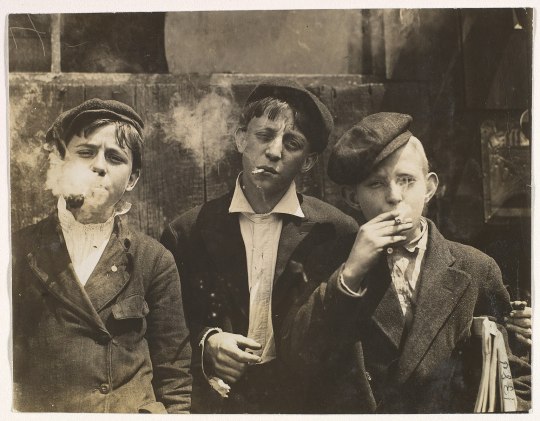
Lewis Hine - Newsies, 1910 - Newsies: Newsies at Skeeter's Branch, Jefferson near Franklin. They were all smoking. St. Louis, Missouri.
Lewis Hine, Photographer of the American Working Class
Few American photographers have captured the misery, dignity, and occasional bursts of solidarity within US working-class life as compellingly as Lewis Hine did in the early twentieth century.
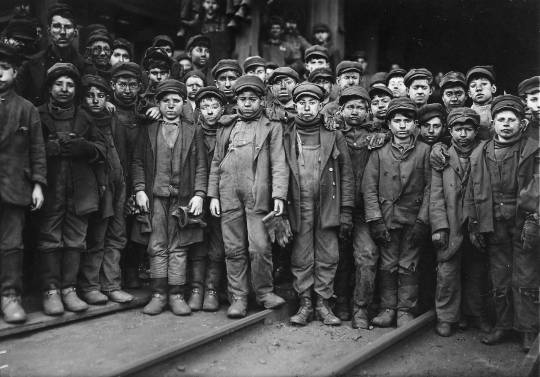
Lewis Hine - Breaker boys, 1910 - Child workers who broke down coal at a mine in South Pittston, Pennsylvania.

Lewis Hine - Little Spinner 1909, Globe Cotton Mill. Overseer said she was regularly employed. Augusta, Georgia. Library of Congress

Lewis Hine - Ten Year Old Spinner, North Carolina Cotton Mill, 1908

Lewis Hine - Little Lottie 1911. She was a regular oyster shucker in Alabama Canning Co. (Bayou La Batre, Alabama)

Lewis Hine -Little Rosie 1913. She was a regular oyster shucker. She was just 7 years old and in her second year at Varn & Platt Canning Co. Bluffton, South Carolina
As an investigative photographer, Hine chronicled the normalized labor abuses in US factories leading up to the Great Depression. Not only did he help introduce some of the country’s first child labor laws, he also revolutionized photography’s artistic use value.
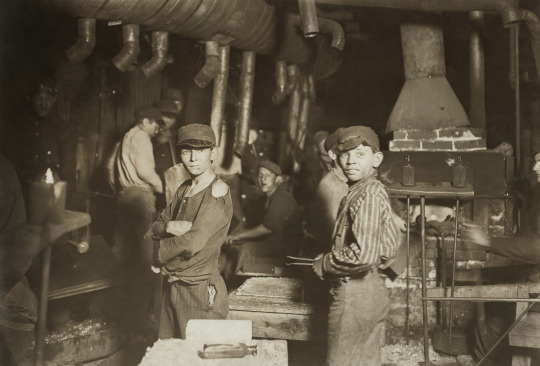
Lewis Hine - Child laborers in glasswork. Indiana, 1908
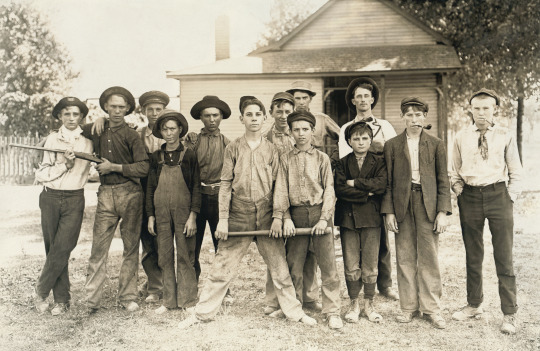
Lewis Hine -Baseball team composed mostly of child laborers from a glassmaking factory. Indiana, 1908

Lewis Hine - Factory Boy, Glassworks, Alexandria, Virginia, 1909
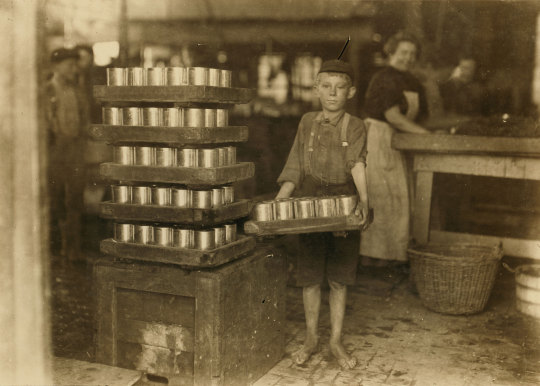
Lewis Hine - One Of The Loading Boys In J. S. Farrand Packing Co. Baltimore, Maryland, 1909
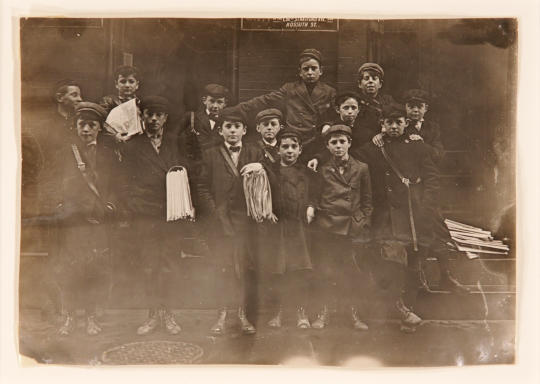
Lewis Hine - Newsboys, Bridgeport Conn., 1909
Hine once argued that a good picture is “a reproduction of impressions made upon the photographer which he desires to repeat to others.” For him, an organized workforce was the epitome of empathy and mutual benefit, which he hoped to convey to the greater American public.
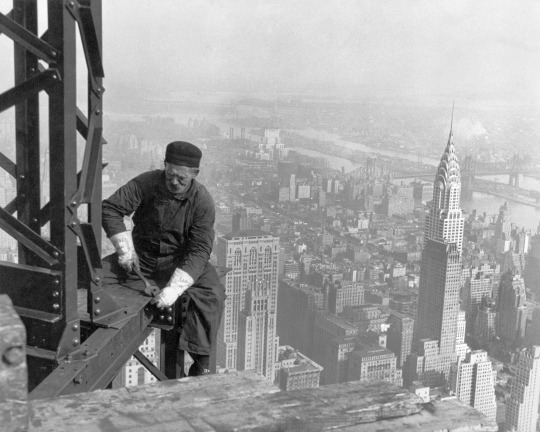
Lewis Hine - Empire State Building worker in 1931

Lewis Hine - Power house mechanic working on steam pump, 1920.

Lewis Wickes Hine
(1874-1940)
“If I could tell the story in words, I wouldn’t need to lug around a camera.” -Lewis Hine
#photography#vintage photography#lewis hine#historical photos#child labor#labor laws#investigative photographer
4K notes
·
View notes
Text
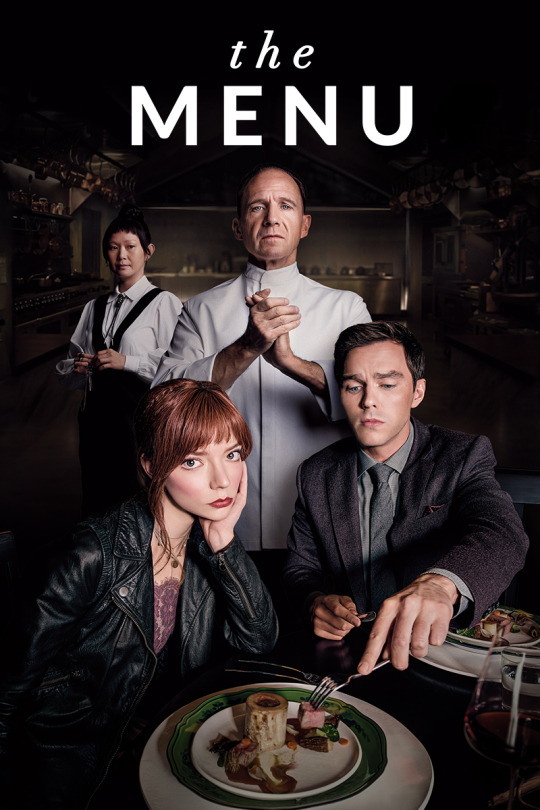
#currently watching#the menu#sitting eating wotsits and feeling like I shouldn’t be#edit: I’m not finished yet but living for the head chef being like ‘solidarity with a service worker ✊’#edit: I also love all the women just getting together and having a session while the men get chased down#edit: the punch when she finds out 👌🏻👌🏻👌🏻👌🏻#edit: ‘he was a bad guy so I convinced him to kill himself for you! we’re team mates now’ 😂😂#edit: I’m LOVING this by the way#edit: killing rich people for being rich…I shouldn’t support it but here we are
1 note
·
View note
Note
I both believe "poor people deserve art" and "artists deserve food", but it's hard to reconcile those beliefs. I blame capitalism. And I suppose it mostly matters who you're stealing from?
I don't mean to question you at all, I'm against people pirating your stories. I guess I was just wondering if you had more thoughts regarding the reconciliation the two beliefs I quoted above.
I think the reconciliation is working toward a future where things are better, and authors and artists don't have to beg people not to steal from them because they think every author is Stephen King, who wouldn't notice if you stole the pennies found under his couch when in reality most of us are hunting for spare change down the back of the couch because we are earning below minimum wage.
We need people to embrace the idea that art belongs to the working class, both in terms of consumption but also creation.
If you don't support the working-class creators, you'll only end up with rich fucks with no scope of the world beyond their own narrow view of privilege.
Indie creators are actually working very hard to change the way the industry works, and the publishing industry is shitting itself over it. They don't like the success some of us are having. It's why they keep upping prices while slashing corners on their own production (while never affecting the man at the top) to try and stay competitive within the rat race they've created.
They're not interested in the proliferation of art. They're not interested in making sure their authors can afford to live. They don't want more diversity. They don't want inclusion. They want profit at whatever the cost.
And while indie creators very much need to get paid because we live in a capitalistic society and everything is burning down around us, and a carton of eggs now costs more than what I earn per hour, our creativity is directly at odds with the type of profiteering big publishers want.
The money should go to the writers. Not the CEOs.
The money should go to the workers in the print houses. Not the CEOs. No one needs the kind of wealth these people have. It's obscene. We need direct action against these conglomerates. We need unionization. We need a means to fight back so that we can make art and make it accessible.
So, how do we do that? I don't know. I'm just a very tired, disabled creator doing my best to keep my head above water. But I think getting people to realize that art and books are worth saving up for would be a good start.
That putting money in the pockets of creators is just as important as your own enjoyment of their art. Because if there aren't any artists, you've got nothing.
Getting them involved with their local libraries would also be a great start. Educating them on how the industry works is part of that. The number of people telling me they had no idea libraries paid authors is staggering. And that's intentional. It's a by-product of right-wing propaganda to make you think libraries are worthless and just sap taxpayers' money.
They're not.
If they were, the fash wouldn't be trying so hard to take them away.
Basically, we need working-class solidarity and for certain people on the left to rid themselves of the idea that just because something isn't borne of manual labor, it doesn't have worth. We need the artists and the dreamers as much as we need to bricklayers and the craftsmen. Otherwise, what's the fucking point of it all?
#sorry#this isn't an actionable answer to your question#I don't know what that answer is#I just need people to realize art is not the exclusive creation of the wealthy#and treating it as such is making everything worse
4K notes
·
View notes
Text
was chatting with a co-worker while folding some pants and instead of being a normal human being the manager told us we were "stealing amazons time" and to get back to our stations
i have never so thoroughly disliked someone from a single interaction before in my LIFE
also I'm pretty sure my brain short circuited for a second there and now that phrase is burned into my brain
#you are STEALING amazons TIME#ma'am you have no idea how much that pleases me#there were like six of us in the immediate area and all of us were like 'oh fuck her' the second she walked away so#worker solidarity lmao#but also fuck her#saw her watching a video at a station once#ok are YOU stealing amazons time then
1 note
·
View note
Text
The unexpected upside of global monopoly capitalism

I'm touring my new, nationally bestselling novel The Bezzle! Catch me TODAY (Apr 10) at UCLA, then Chicago (Apr 17), Torino (Apr 21) Marin County (Apr 27), Winnipeg (May 2), Calgary (May 3), Vancouver (May 4), and beyond!

Here's a silver lining to global monopoly capitalism: it means we're all fighting the same enemy, who is using the same tactics everywhere. The same coordination tools that allow corporations to extend their tendrils to every corner of the Earth allows regulators and labor organizers to coordinate their resistance.
That's a lesson Mercedes is learning. In 2023, Germany's Supply Chain Act went into effect, which bans large corporations with a German presence from using child labor, violating health and safety standards, and (critically) interfering with union organizers:
https://www.bafa.de/EN/Supply_Chain_Act/Overview/overview_node.html
Across the ocean, in the USA, Mercedes has a preference for building its cars in the American South, the so-called "right to work" states where US labor law is routinely flouted and unions are thin on the ground. As The American Prospect's Harold Meyerson writes, the only non-union Mercedes factories in the world are in the US:
https://prospect.org/labor/2024-04-08-american-workers-german-law-uaw-unions/
But American workers – especially southern workers – are on an organizing tear, unionizing their workplaces at a rate not seen in generations. Their unprecedented success is down to their commitment, solidarity and shrewd tactics – all buoyed by a refreshingly pro-worker NLRB, who have workers' backs in ways also not seen since the Carter administration:
https://pluralistic.net/2023/09/14/prop-22-never-again/#norms-code-laws-markets
Workers at Mercedes' factory in Vance, Alabama are trying to join the UAW, and Mercedes is playing dirty, using the tried-and-true union-busting tactics that have held workplace democracy at bay for decades. The UAW has lodged a complaint with the NLRB, naturally:
https://www.commondreams.org/news/alabama-mercedes-benz
But the UAW has also filed a complaint with BAFA, the German regulator in charge of the Supply Chain Act, seeking penalties against Mercedes-Benz Group AG:
https://uaw.org/uaw-files-charges-in-germany-against-mercedes-benz-companys-anti-union-campaign-against-u-s-autoworkers-violates-new-german-law-on-global-supply-chain-practices/
That's a huge deal, because the German Supply Chain Act goes hard. If Mercedes is convicted of union-busting in Alabama, its German parent-company faces a fine of 2% of its global total revenue, and will no longer be eligible to sell products to the German government. Chomp.
Now, the German Supply Chain Act is new, and this is the first petition filed by a non-German union with BAFA, so it's not a slam dunk. But supermajorities of Mercedes workers at the Alabama factory have signed UAW cards, and the election is going to happen in May or June. And the UAW – under new leadership, thanks to a revolution that overthrew the corrupt old guard – has its sights set on all the auto-makers in the American south.
As Meyerson writes, the south is America's onshore offshore, a regulatory haven where corporations pay minimal or no tax and are free to abuse their workers, pollute, and corrupt local governments with a free hand (no wonder American industry is flocking to these states). Meyerson: "The economic impact of unionizing the South, in other words, could almost be placed in the same category as reshoring work that had gone to China."
The German Supply Chain Act was passed with the help of Germany's powerful labor unions, in an act of solidarity with workers employed by German companies all over the world. This is that unexpected benefit to globalism: the fact that Mercedes has extrusions into both the American and German political spheres means that both American and German workers can collaborate to bring it to heel.
The same is true for antitrust regulators. The multinational corporations that are in regulators' crosshairs in the US, the EU, the UK, Australia, Japan, South Korea and beyond use the same playbook in every country. That's doubly true of Big Tech companies, who literally run the same code – embodying the same illegal practices – on servers in every country.
The UK's Competition and Markets Authority has led the pack on convening summits where antitrust enforcers from all over the world gather to compare notes and collaborate on enforcement strategies:
https://www.eventbrite.co.uk/e/cma-data-technology-and-analytics-conference-2022-registration-308678625077
And the CMA's Digital Markets Unit – which boasts the the largest tech staff of any competition regulator in the world – produces detailed market studies that turn out to be roadmaps for other territories' enforces to follow – like this mobile market study:
https://assets.publishing.service.gov.uk/media/63f61bc0d3bf7f62e8c34a02/Mobile_Ecosystems_Final_Report_amended_2.pdf
Which was extensively referenced in the EU during the planning of the Digital Markets Act, and in the US Congress for similar legislation:
https://www.congress.gov/bill/117th-congress/senate-bill/2710
It also helped enforcers in Japan:
https://asia.nikkei.com/Business/Technology/Japan-to-crack-down-on-Apple-and-Google-app-store-monopolies
And South Korea:
https://www.reuters.com/technology/skorea-considers-505-mln-fine-against-google-apple-over-app-market-practices-2023-10-06/
Just as Mercedes workers in Germany and the USA share a common enemy, allowing for coordinated action that takes advantage of vulnerable flanks wherever they are found, anti-monopoly enforcers are sharing notes, evidence, and tactics to strike at multinationals that are bigger than most countries – but not when those countries combine.
This is an unexpected upside to global monopolies: when we all share a common enemy, we've got endless opportunities for coordinated offenses and devastating pincer maneuvers.

If you'd like an essay-formatted version of this post to read or share, here's a link to it on pluralistic.net, my surveillance-free, ad-free, tracker-free blog:
https://pluralistic.net/2024/04/10/an-injury-to-one/#is-an-injury-to-all
#pluralistic#monopoly#labor#nlrb#germany#harold meyerson#supply chain act#right to work#onshore offshore#uaw#vance alabama#vance#alabama#bafa#mercedes#antitrust#trustbusting
684 notes
·
View notes
Text

Happy birthday, Leslie Feinberg! (September 1, 1949)
A prominent butch lesbian author and activist, Leslie Feinberg grew up in Buffalo, New York in a working class Jewish family. Ze discovered hir sexuality sometime in hir teens, and ze began frequenting Buffalo's gay bars. Ze became involved in radical politics in hir twenties, joining the Workers World Party and becoming a contributor and later editor of its newspaper. Ze would take part in many radical actions and demonstrations both in Buffalo and after moving to New York City. Hir experiences as a butch lesbian in Buffalo and NYC informed the semi-autobiographical Stone Butch Blues, hir most famous work, which went on to have an extremely influential place in the lesbian community. Ze also wrote Transgender Warriors, an influential work of popular history on the subject of gender, as well as other books and writings related to sex, gender, and revolutionary politics. Feinberg died in 2014, hir final words being a plea to remember hir as a revolutionary communist. Ze was later honored as an inaugural inductee to the National LGBT Wall of Honor.
“Like racism and all forms of prejudice, bigotry against transgendered people is a deadly carcinogen. We are pitted against each other in order to keep us from seeing each other as allies. Genuine bonds of solidarity can be forged between people who respect each other's differences and are willing to fight their enemy together. We are the class that does the work of the world, and can revolutionize it. We can win true liberation.”
2K notes
·
View notes
Text
I believe very strongly that if you want to be an ally to marginalized groups, you should absolutely read and watch material bigoted against them.
This is because one of the big things that radicalization pipelines benefit from is the principle I've seen framed as "milk before meat", where they feed you palatable, easily digestible ideas, often with a kernel of truth, in order to work you up to the core of the bigoted ideology. If you go to the meat first, you will choke on it. This will make you more easily able to spot it when they try to feed you the milk, and more resistant because you know the meat it's building up to.
There are two keys. First, you need to start with the meat, and second, you need to read it with a sharply critical eye.
If you're looking to read something fatphobic, for example, Harry Potter may be a great mainstream example, but it's in a way that is so culturally acceptable that it can slip by if you aren't looking for it. "None For You: How Fat People Are Ruining America and the Planet and What You Can Do About It", on the other hand, is rather obvious in its biases, allowing an amateur to see them clearly for easier interrogation of the premise. Most bigoted material can be acquired by piracy or through your local library. This is one of the big reasons that libraries stock bigoted material.
Then, start noting down all of the things that the material says that seem to make sense, or that you are sure are true. There's no shame in this. Bigoted ideas are ingrained in your upbringing, and on top of this, a lot of bigots will take real problems and build on them in ways that are bigoted.
For instance, anti-immigrant sentiment in the USA is often bolstered by the fact that wages in the USA are effectively decreasing, along with job security. They say that this is because immigrants are taking the jobs, decreasing the amount of value that is available to USAmericans. To a USAmerican who does not know much about immigrants, but does know that their paycheck buys less and less, this sounds like a plausible explanation.
Then, later, look up exactly what they are saying. What are the real issues? (Racism and unchecked capitalism.) Why are they being used to bolster this argument? (Because it takes the heat off of powerful people and puts it on powerless ones, redirecting the hate to people it can more easily hurt, which satisfies the rage of the USAmerican, drives a wedge between them and immigrants, and takes heat off of the powerful.) What are real ways to tackle the real issue? (Solidarity with immigrant workers, especially undocumented ones, unions, and working for better social safety nets.) Why did I fall for that? (You did not have enough information.) Can I notice this rhetoric in the future and avoid falling for it? (Yes.)
Know that many of the ideas you encounter will be normal. Much bigotry is normal. Normal is not automatically good or right.
Know that there will be useful ideas interspersed with some bigotry. A lot of people with useful ideas have been bigots. This does not mean we must discard their ideas, nor that we must accept the bigotry. It does mean that we need to critically examine the ideas to see if they are rooted in and/or affected by the bigotry, and if it is possible to effectively remove them from their bigoted origins, or if the bigotry is so wound into the ideas that they is no longer useful if you wish to avoid harming the group the thinker was bigoted against.
This is difficult work to do. It is intellectually intensive, and emotionally exhausting. You will start seeing bigotry in all kinds of places, including media you thought of as "good" and "progressive", and that will also be emotionally exhausting and dispiriting. It will also mean that you are no longer passively absorbing those bigoted ideas because you settled on the idea that this media is "good" and that as long as you only consume "good" media, you will be free of bigoted ideas- a premise that is disturbingly popular for how incorrect it is. Knowing how to recognize and discard bigotry in works is far, far more useful than flatly refusing to consume more overtly bigoted works.
One way to make it easier is to form reading groups, so that you can lean on each other when reading something that's affecting you badly. It also means that there's more than one person processing the bigotry, so other people might notice more subtle parts of the bigotry that slipped past you in your own reading, allowing you to have a fuller picture of the book. If you can't form a reading group, more famous bigoted works often have criticism available online for you to read through. Remember to do your own research. What makes doing this so valuable is increasing your own ability to detect bigotry and to think critically about material you are consuming.
You do not have to limit yourself to traditional media, either. There are forums and social media bubbles that are hotbeds of bubbling, seething bigotry that is more extreme and repugnant than the vast majority of published work. Reading these conversations can be useful for the exact same reasons that reading overtly bigoted books, articles, letters, and essays can be, and they often contain more up to date dogwhistles. However, this is a riskier move. Social media is built to make you keep scrolling, and you can easily find yourself at your wits end and vulnerable to a bigot whose rhetoric is slightly less obvious than the others. In addition, it can be tempting to interact- at which point the bigots will either attack you or try to recruit you, both of which are damaging to you. Only read the conversations of bigots if you are well supported and have strong impulse control, and read them in small doses.
You are not immune to propaganda, but you can partially inoculate yourself into being less vulnerable by consuming it in controlled circumstances that match your ability to recognize it as such and reject it.
2K notes
·
View notes
Text
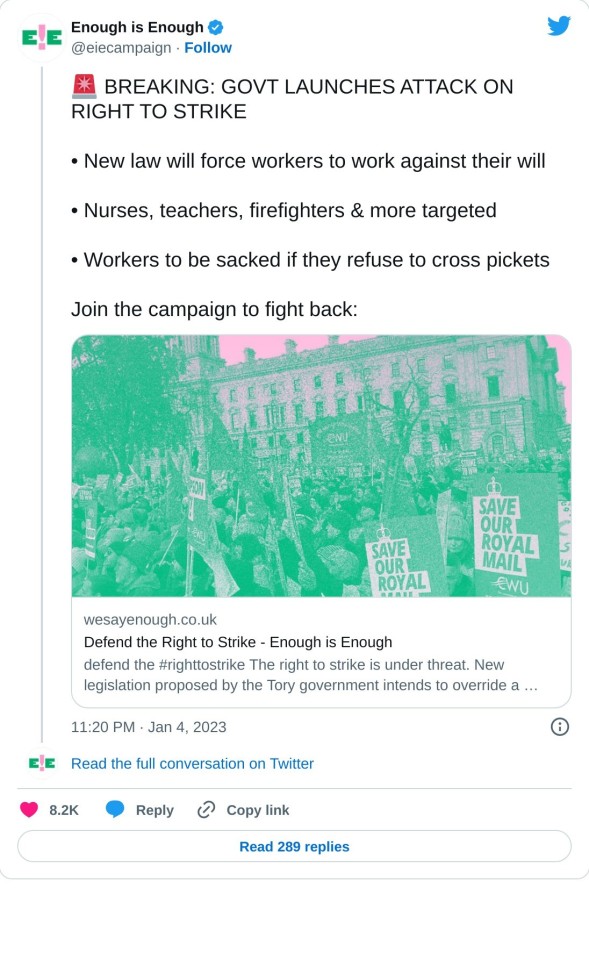
The UK is an absolute cluster fuck at the moment, people are suffering and all our gov wants to do atm is launch a smear campaign against workers and individuals who advocate for them (Mick Lynch) also teach the kids maths.
The audacity of implying that nurses and paramedics are endangering lives when they strike, when the actual endangerment is the calculated destruction of the NHS. The implications that nurses don't work hard enough when they work ridiculously tiring shifts. That if they worked some more they wouldn't need food banks.
That is simply one example of how workers are being mistreated and exploited by this government. And its an important one, we as a country were united by our health service, one we all could be proud of and rally behind.
Our workers desvere so much better, striking is the solution and it's not a decision taken lightly by workers. They need protect.
If you are uk based I'm asking that you sign this petition, demonstrate some solidarity.
3K notes
·
View notes
Text
September 25: Read the WGA's email to its membership
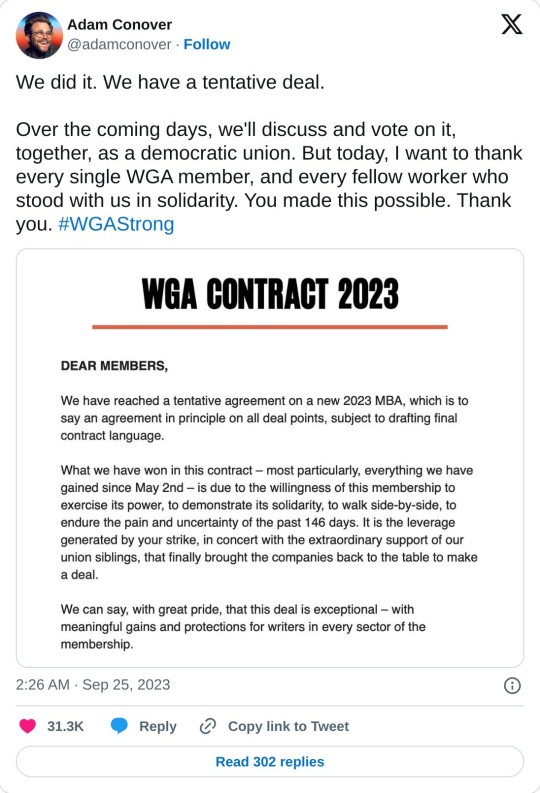
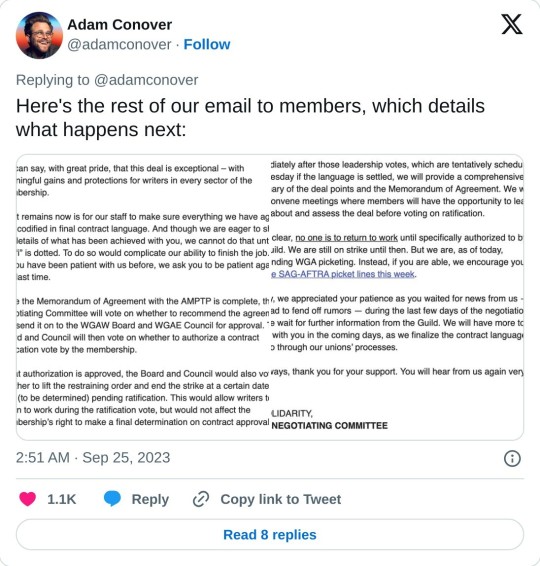
[ID: tweet from Adam Conover @/adamconover that says, "We did it. We have a tentative deal. Over the coming days, we'll discuss and vote on it, together, as a democratic union. But today, I want to thank every single WGA member, and every fellow worker who stood with us in solidarity. You made this possible. Thank you. #WGAStrong".
Attached is a screenshot of the first part of the WGA's recent email to its membership. Conover's next tweet says, "Here's the rest of our email to members, which details what happens next:" with the rest of the email attached in screenshots.
Transcript of the WGA's email to its membership:
DEAR MEMBERS,
We have reached a tentative agreement on a new 2023 MBA, which is to say an agreement in principle on all deal points, subject to drafting final contract language.
What we have won in this contract — most particularly, everything we have gained since May 2nd — is due to the willingness of this membership to exercise its power, to demonstrate its solidarity, to walk side-by-side, to endure the pain and uncertainty of the past 146 days. It is the leverage generated by your strike, in concert with the extraordinary support of our union siblings, that finally brought the companies back to the table to make a deal.
We can say, with great pride, that this deal is exceptional — with meaningful gains and protections for writers in every sector of the membership.
What remains now is for our staff to make sure everything we have agreed to is codified in final contract language. And though we are eager to share the details of what has been achieved with you, we cannot do that until the last "i" is dotted. To do so would complicate our ability to finish the job. So, as you have been patient with us before, we ask you to be patient again — one last time.
Once the Memorandum of Agreement with the AMPTP is complete, the Negotiating Committee will vote on whether to recommend the agreement and send it on to the WGAW Board and WGAE Council for approval. The Board and Council will then vote on whether to authorize a contract ratification vote by the membership.
If that authorization is approved, the Board and Council would also vote on whether to lift the restraining order and end the strike at a certain date and time (to be determined) pending ratification. This would allow writers to return to work during the ratification vote, but would not affect the membership's rights to make a final determination on contract approval.
Immediately after those leadership votes, which are tentatively scheduled for Tuesday if the language is settled, we will provide a comprehensive summary of the deal points and the Memorandum of Agreement. We will also convene meetings where members will have the opportunity to learn more about and assess the deal before voting on ratification.
To be clear, no one is to return to work until specifically authorized to by the Guild. We are still on strike until then. But we are, as of today, suspending WGA picketing. Instead, if you are able, we encourage you to join the SAG-AFTRA picket lines this week.
Finally, we appreciated your patience as you waited for news from us — and had to fend off rumors — during the last few days of the negotiation. Please wait for further information from the Guild. We will have more to share with you in the coming days, as we finalize the contract language and go through our unions' processes.
As always, thank you for your support. You will hear from us again very soon.
In solidarity,
WGA NEGOTIATING COMMITTEE
#wga strike#writers strike#writers guild of america#wga solidarity#i stand with the wga#current events#hollywood strike
5K notes
·
View notes
Text

From @perfectunion:
"Night Owls makes merchandise for some of your favorite artists.
When staff decided to unionize though, they were confronted with months of aggressive of union-busting. Workers eventually won their union election only to be laid off and locked out less than two month later.
You can support the workers of @nightowlsutd by telling artists to print union. You can also donate to workers, most of whom are currently on unemployment, via the GoFundMe in @nightowlsutd bio"
As proud members of the largest union on earth, Jake and Erykah are disgusted by the actions of Night Owls management. We are further disgusted (and honestly, confused) by customers of Night Owls who feel they are being "exploited" by @nightowlsutd 's request to make a statement in support of their union.
NerdyKeppie stands with Night Owls United and workers everywhere. Send us proof of your donation to the "Support Night Owls United Workers" kickstarter and receive a 15% off discount code. Learn more about NOU on @nightowlsutd [on Instagram] and follow the link in their bio to support their GoFundMe.
An Injury to One is an Injury to All - Industrial Workers of the World
343 notes
·
View notes